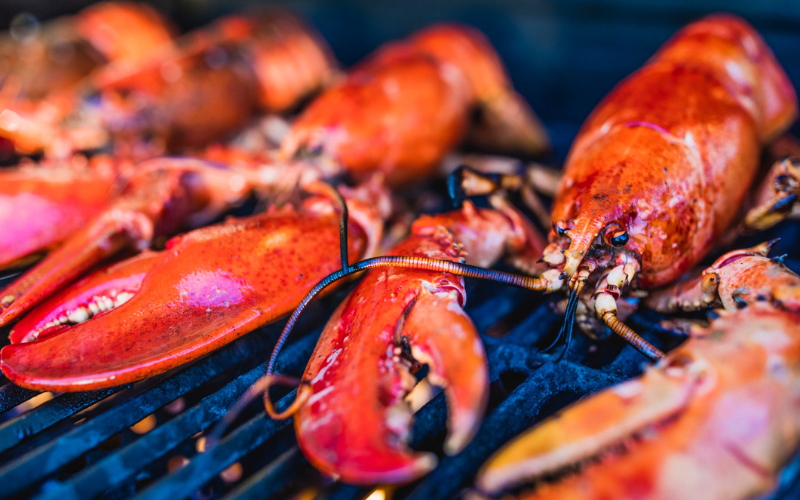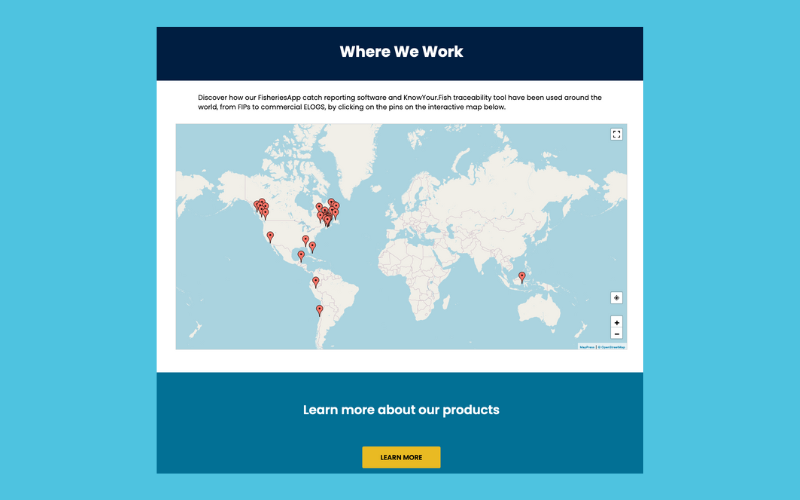Canada is the largest lobster-producing nation in the world. From Nova Scotia to PEI to Quebec, Canada’s lobster industry is a major economic driver – and a source of pride – for hundreds of coastal communities.
The commercial lobster industry in Canada dates back to the 19th century when advancements in fishing technology and transportation allowed lobster to be exported to markets beyond the local communities. The first lobster canneries were established in the 1800s, and by the late 1800s, the industry had become a significant economic driver for provinces like Nova Scotia, New Brunswick, and Prince Edward Island. However, lobster wasn’t considered a luxury until after the First World War.
In 2023, Canada exported 180,325,000 lbs of lobster worth $2.46 billion to 80 countries. Between 2018 and 2023, lobster exports have exceeded $14.8 billion, and lobster is Canada’s top seafood export.
With generations of expertise, Canada’s lobster industry employs about 25,000 harvesters across five provinces and approximately 15,000 shoreline sector workers – about 40,000 people in hundreds of primarily rural coastal communities. The industry also supports other businesses such as boat building, equipment manufacturing, transportation and logistics companies, significantly boosting that 40K number, making it a robust industry on multiple fronts.
Sustainable Lobster Harvesting and Stewardship
Like any commercial fishery, managing fish stocks is always a concern. With the lobster fishery, the foresight to focus on management and conservation dates back to when the industry started to grow in the 1800s. According to the Fisheries Museum of the Atlantic, “In 1871, the government introduced regulations regarding ‘berried’ (egg bearing) lobsters, size of lobsters, and soft-shelled lobsters being harvested.”
Fisheries and Oceans Canada works with the industry to put regulations, practices, and conservation methods in place to track the health and stability of the lobster population for now and for the future. As well as monitoring and enforcing fishing regulations and licencing conditions, other conservation and stewardship efforts include:
- Enforcing size and catch limits
- Using biodegradable traps that allow undersized lobsters to escape
- Managing seasonal closures and staggered fishing seasons
- Setting license and trap limits
- Protecting egg-bearing females
This has resulted in “97% of Canadian lobsters come from fisheries independently certified by the Marine Stewardship Council, which ensures Canadian lobsters are sustainable and traceable,” according to The Lobster Council of Canada website.
Technical Innovation in the Lobster Industry
Given how lucrative the lobster industry is, it’s no surprise that new technology is continually being developed to help support and strengthen the sector.
One great example is electronic logbooks (ELOGS), which will soon replace paper logbooks in Canada. ELOGS streamline the catch reporting process and reduce the likelihood of errors and delays associated with manual reporting methods. Along with other new technologies, innovations like ELOGS give regulatory bodies access to real-time information on fish stocks, enabling informed decision-making and resource allocation, which helps minimize the risk of overfishing and ensures sustainable practices. Other innovations include technology that helps track and retrieve ghost gear and the potential for the fleet to move toward electric boats rather than diesel.
When asked about innovation in the industry, Geoff Irvine, the Executive Director of the Lobster Council of Canada, says, “Given the pace of change within the international protein market, the lobster industry is leading the way with significant advances from trap to table. Lobster harvesters are testing new trap technology that helps lower the number of vertical lines in the water and lowers the breaking strength for necessary rope. They are also engaging with data collection technology to save and share landings data more easily with regulators and their organizations. Within the shore-side sector, buyers and dealers are engaging in solutions to help them monitor water temperature and quality and better understand the biological condition of the lobster they store and sell. Processors are testing products that provide safe and longer shelf life for lobster meat, and live lobster shippers are using traceability software to help satisfy international requirements.”
Climate Change and the Lobster Industry
The science seems divided on how much warming oceans and climate change will affect Canada’s lobster industry. Some research says lobsters are at low to moderate risk from climate change, while others say rising emissions put the sector at risk. Either way, the impact of climate change will require ongoing research, collaboration, and the implementation of innovative conservation strategies for the industry to continue to thrive.
Some of those strategies and research are already underway, including the Lobster Food File project from Springboard Atlantic and the Atlantic Canada Opportunities Agency, which connects industry with researchers to form research projects, including finding better lobster bait and the analysis of lobster fisheries data to inform commercialization directions. Springboard Atlantic also has a Lobster Quality Centre to help protect the industry from climate change.
The DFO also recently issued new exploratory lobster licenses for LFAs 18 and 19 in Quebec to explore new economic opportunities to benefit coastal communities in areas where lobster stock is increasing, potentially due to climate change.
The Future of Canada’s Lobster Industry
Canada’s lobster industry is both rooted in tradition and traditionally forward-thinking, so it’s well-positioned to adapt to future challenges by balancing the market’s demands with the need for long-term ecological stewardship. Through ongoing research, collaboration, and the adoption of cutting-edge technologies, the industry can address challenges like climate change and ensure the current and future health of the lobster population and coastal communities where the industry thrives.
Click here if you’re interested in learning more about how ELOGS are supporting Canada’s Lobster Industry.


